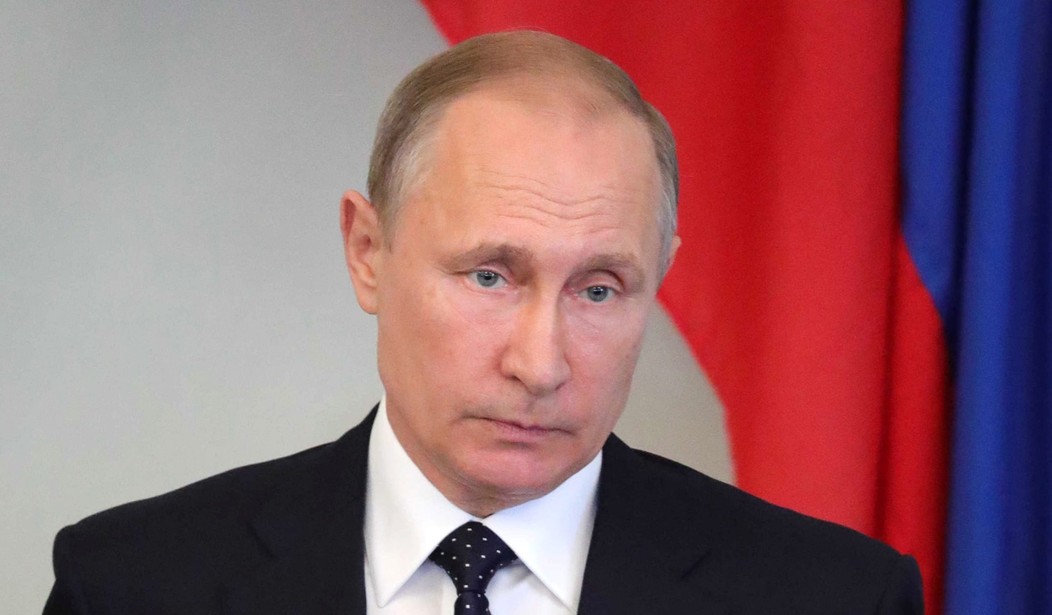The companion to Buzzfeed’s gripping series describing the rampage of Russian assassination teams in the West is George Friedman’s observation that in the process Putin has destroyed his protectors as collateral damage. Buzzfeed vividly demonstrates that long before Trump Putin’s secret service was out of control in the West, liquidating dozens of regime opponents in London and even in Obama-era Washington DC.
Vladimir Putin’s former media czar was murdered in Washington, DC, on the eve of a planned meeting with the US Justice Department, according to two FBI agents whose assertions cast new doubts on the US government’s official explanation of his death.
Mikhail Lesin’s battered body was discovered in his Dupont Circle hotel room on the morning of Nov. 5, 2015, with blunt-force injuries to the head, neck, and torso. After an almost yearlong “comprehensive investigation,” a federal prosecutor announced last October that Lesin died alone in his room due to a series of drunken falls “after days of excessive consumption of alcohol.” His death was ruled an “accident,” and prosecutors closed the case.
But the two FBI agents — as well as a third agent and a serving US intelligence officer — said Lesin was actually bludgeoned to death. None of these officials were directly involved in the government’s investigation, but they said they learned about it from colleagues who were.
“Lesin was beaten to death,” one of the FBI agents said. “I would implore you to say as much. There seems to be an effort here to cover up that fact for reasons I can’t get into.”
Agents can’t get into the whys but the reasons are nevertheless well known. Dictators own too much London real estate, supply too much gas and have too many open accounts in the City and Wall Street to really risk clamping down on them. This was was the situation months before anyone knew who would win the Republican primaries and a full year before the political upset of the century derailed the near-certain accession of Hillary Clinton to the White House. There was to mix metaphors, a semi-stable Mexican standoff with Russia that is now gone.
In the meltdown that followed Hillary’s loss the Democratic Party reacted by accusing Trump of colluding with the Russians. Trump responded by being Trump. The result was Washington was soon in a state of Cold Civil War where none of the traditional mechanisms worked any more. No one had really prepared for a situation where no one dared pick up the phone in Washington because both political sides had discovered warrantless surveillance under Section 702. In this atmosphere the politicians had no alternative but lie low and play to the crowd. Friedman observes how politicians have been borne along by events:
The U.S. Congress is close to passing a resolution increasing sanctions on Russia, along with Iran and North Korea, and it’s likely that President Donald Trump will approve it. The bill passed the House of Representatives with overwhelming and bipartisan support, revised primarily to give some leeway to energy companies involved in joint ventures with Russia. The bill takes authority away from the president to suspend sanctions except in specific cases. Since any rapprochement with Russia would have to include a suspension of sanctions, this effectively takes a great deal of control over U.S.-Russian relations out of the hands of the president and shifts it to Congress. This is not unprecedented; Congress did something similar over Iran during Barack Obama’s presidency.
The adults the room had been sidelined and the Red State Wild Man was smashing the China. (Well one can say Mexican standoff) It became immediately apparent that a newly unrestrained Washington had run over something heretofore secretly off-limits. Europe immediately warned Congress to pull back. Moral posturing was one thing, but actual threats to oil deals, real estate and lucrative offshore banking were another. “The head of the German Committee on East European Economic Relations said potential damage to European energy sector companies with business interests in Russia could justify counter-sanctions. ‘It’s the last thing we want, but we must keep the option open,’ Michael Harms told a news conference in Berlin.”
But it may be too late. The crisis was partly of Putin’s own making. His disinformation had worked all too well. Friedman wrote, “it involved agitation on the internet, theft and forgery of electronic documents, and the quiet recruitment of operatives. We should remember that one of the Soviet Union’s cutest tricks was to create a framework that made it appear that someone wanting nothing to do with them was actually working for them, leaving the victim discredited.”
Was Trump or any of his staff linked to this operation? I don’t know, but I do know that it is both possible that some were, and possible that the Russians have made it appear that they were. Western destabilization campaigns built on NGOs, whose members are oblivious to the strategic purpose they are serving, completely and sincerely focused on their moral quest. Russian operations create a vast realm of uncertainty as to what the truth is. On the internet, they created a world of confusion and enveloped the political system with a similar uncertainty.
It is difficult to imagine that they had control over Trump, because if they had sufficient information to control him, they would have protected him from any hint of connection to Russia. There are too many trails leading from the Russians to Trump to believe they had him. Phone calls and meetings would not have taken place, and contact with his staff would not have existed. But perhaps the Russians are getting clumsy, and perhaps they were seeking to discredit an American president.
Putin sowed the wind, little reckoning it would morph out of control into a whirlwind. (Emphasis mine)
But with the passage of this bill, there is the first indication that they have failed not only in permanently destabilizing the United States but also in achieving their foreign policy goals. Instead, they generated a massive systemic backlash, with the House voting overwhelmingly for the bill and Trump having no choice but to sign it. The Democrats supported it because it took power over U.S.-Russia relations away from the president and gave Congress a degree of control. The Republicans voted for it because they could not appear to be soft on the Russians. The president will sign it because all the investigations of Russian-generated chaos raised the question of his complicity with Russia, and vetoing would be politically untenable.
The bill leaves Russia in a worse position than before. The sanctions extend themselves to Russia’s most vulnerable point: They make American participation in Russian energy projects – and in finance – more difficult. As important, because congressional approval is required to remove them, they are mostly locked in place. The U.S. has not eliminated the NGOs on Russia’s periphery, and it has certainly conceded nothing to the Russians concerning a sphere of influence.
Most important, the bill brought everyone together on the one thing the Russians didn’t want: suspicion of and hostility toward Russia. It isn’t fair to say this gambit has blown up in Putin’s face, but it has evaporated major support in the U.S. for a rapprochement with Russia. The group in the Democratic Party that supports entente with other nations excepts Russia. The faction in the Republican Party that wants an understanding with Russia has its hands tied and lives in an air of suspicion. Russia, having played its hand, must now return to reconsider the economic situation in its country, a far grimmer reality than manipulating the world.
Now Putin — and everyone in the status quo ante — is trapped in the dynamic of the populist revolt. The Russian has no choice but to up the ante. “Russian President Vladimir Putin announced on Sunday that he is ordering 755 American diplomats to leave Russia amid sweeping new sanctions legislation that was overwhelmingly approved by Congress and is expected to be signed by President Trump.” And it’s hard to imagine a terrified Washington doing anything but matching his bet. Who can stop the cycle now that it has seemingly taken on a life of its own?
The Global Elite, of which Putin was a part, believed they were in control of events. They may now be having second thoughts.
Follow Wretchard on Twitter
For a list of books most frequently purchased by readers, visit my homepage.
Support the Belmont Club by purchasing from Amazon through the links below.
Books:
President’s Secrets: The Use and Abuse of Hidden Power, Author Mary Graham tracks the rise in governmental secrecy that began with surveillance and loyalty programs during Woodrow Wilson’s administration, explores how it developed during the Cold War, and analyzes efforts to reform the secrecy apparatus and restore oversight in the 1970s. Chronicling the expansion of presidential secrecy in the Bush years, she explains what presidents and the American people can learn from earlier crises, why the attempts of Congress to rein in stealth activities don’t work, and why presidents cannot hide actions that affect citizens’ rights and values.
Moonwalking with Einstein: The Art and Science of Remembering Everything, by Joshua Foer. This book recounts Foer’s year-long quest to improve his memory under the tutelage of top “mental athletes.” He draws on cutting-edge research, a surprising cultural history of remembering, and venerable tricks of the mentalist’s trade to transform our understanding of human memory. From the United States Memory Championship to deep within the author’s own mind, his journey reminds us that, in every way that matters, we are the sum of our memories.
Magnum! The Wild Weasels in Desert Storm: The Elimination of Iraq’s Air Defence, by Brick Eisel and James Schreiner. This book is based upon a journal Schreiner kept during his deployment to the Persian Gulf region for Operations Desert Shield and Desert Storm. Building on that record and the recollections of other F-4G Wild Weasel aircrew, the authors show a slice of what life and war was like during that time.
Democracy in America, by Alexis de Tocqueville, translated by Henry Reeve. First published in 1835, this book endures as a brilliant study of America’s national government and character. Woodrow Wilson wrote that the author’s “ability to illuminate the actual workings of American democracy was “possibly without rival.” For today’s readers, de Tocqueville’s concern about the effect of majority rule on the rights of individuals remains deeply meaningful and his observations about the “almost royal prerogatives” of the president and the need for virtue in elected officials are particularly prophetic. His profound insights into the great rewards and responsibilities of democratic government are words every American needs to read, contemplate, and remember.
For a list of books most frequently purchased by readers, visit my homepage.
Did you know that you can purchase some of these books and pamphlets by Richard Fernandez and share them with your friends? They will receive a link in their email and it will automatically give them access to a Kindle reader on their smartphone, computer or even as a web-readable document.
The War of the Words, Understanding the crisis of the early 21st century in terms of information corruption in the financial, security and political spheres
Rebranding Christianity, or why the truth shall make you free
The Three Conjectures, reflections on terrorism and the nuclear age
Storming the Castle, why government should get small
No Way In at Amazon Kindle. Fiction. A flight into peril, flashbacks to underground action.
Storm Over the South China Sea, how China is restarting history in the Pacific
Tip Jar or Subscribe or Unsubscribe to the Belmont Club










Join the conversation as a VIP Member